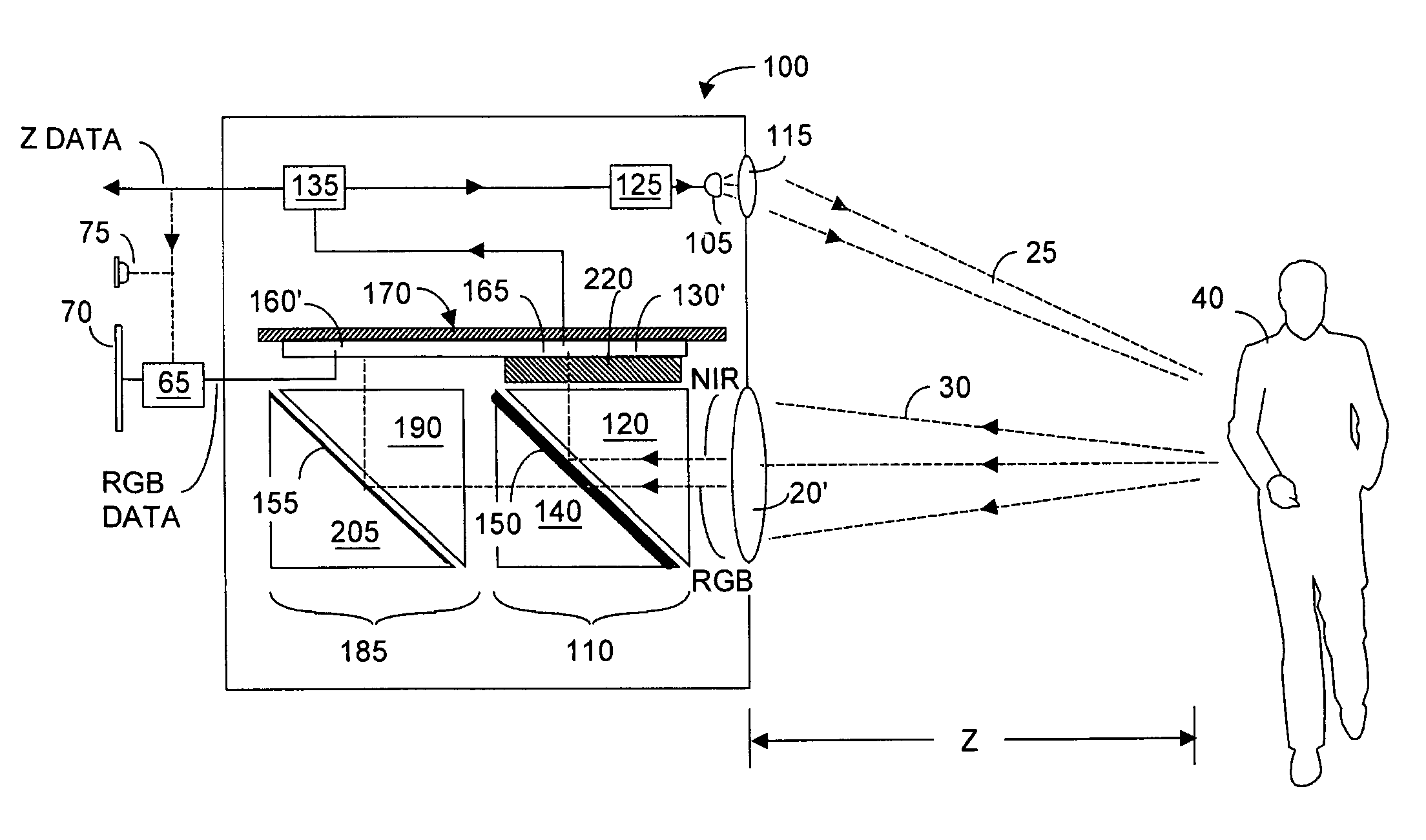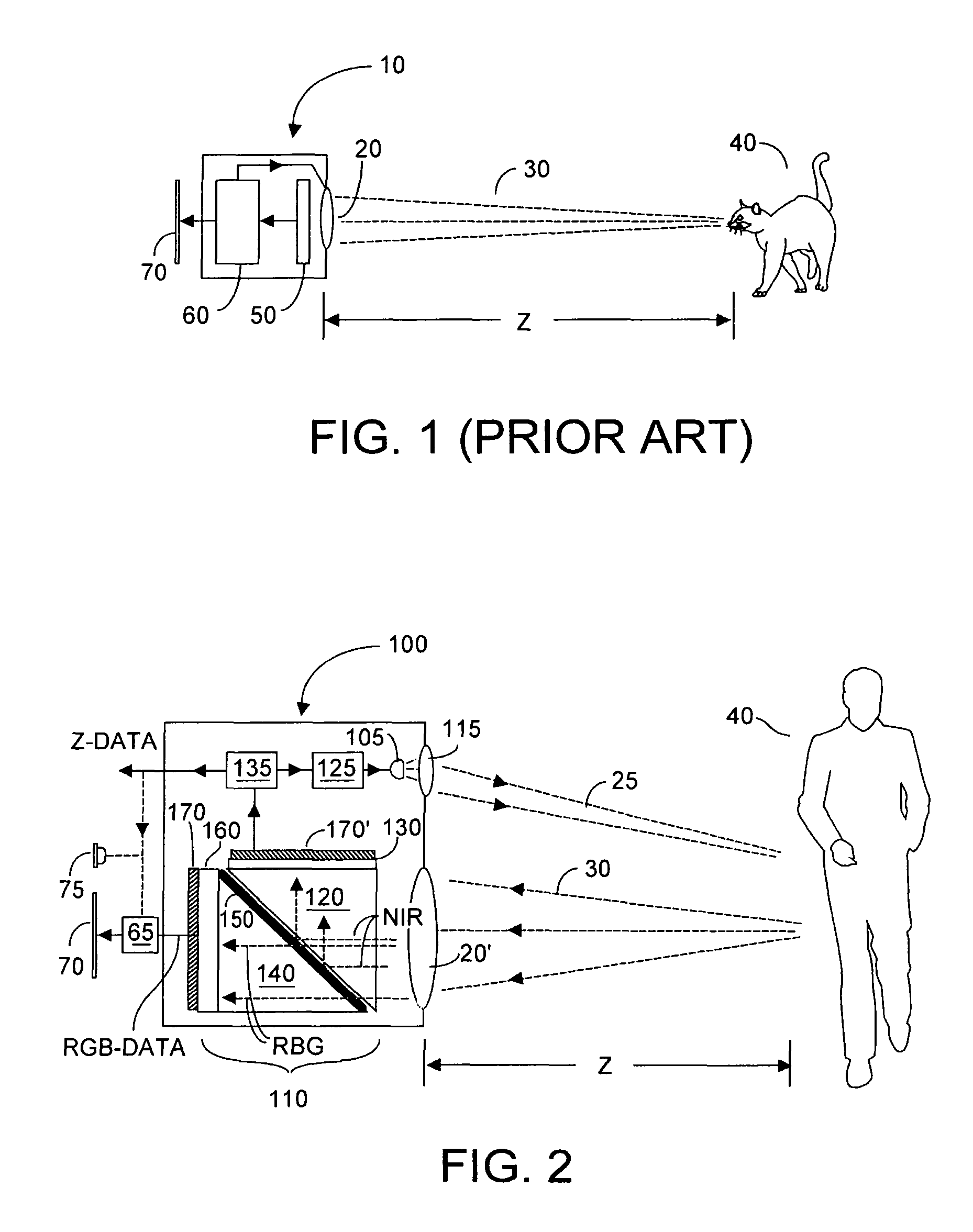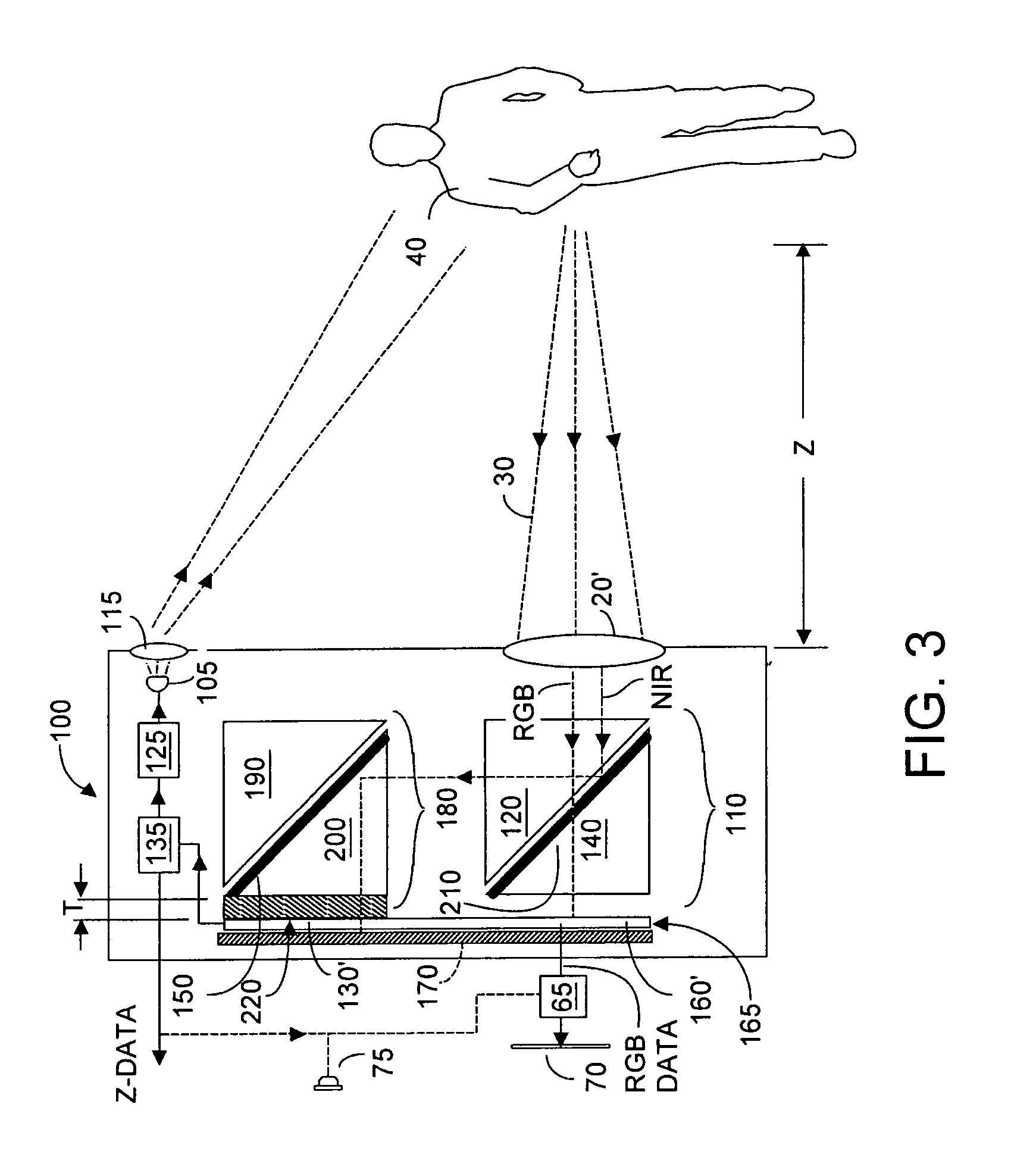Single chip red, green, blue, distance (RGB-Z) sensor
a sensor and single chip technology, applied in the field of solid-state sensors, can solve the problems of large image artifacts, difficult to achieve in practice, and no useful depth information, and achieve the effect of rapid identification
- Summary
- Abstract
- Description
- Claims
- Application Information
AI Technical Summary
Benefits of technology
Problems solved by technology
Method used
Image
Examples
Embodiment Construction
[0025]Reference will now be made in detail to the preferred embodiments of the invention, examples of which are illustrated in the accompanying drawings. While the invention will be described in conjunction with the preferred embodiments, it will be understood that they are not intended to limit the invention to those embodiments. On the contrary, the invention is intended to cover alternatives, modifications and equivalents, which may be included within the spirit and scope of the invention as defined by the appended claims.
[0026]FIG. 2 depicts a camera system 100 that includes a preferably RGB-Z sensor 110, according to the present invention. As will now be described, RGB-Z sensor 110 includes an array 160 of high resolution pixel detectors responsive to wavelengths in a first spectral band, preferably RGB wavelengths, and an array 130 of lower resolution pixel Z detectors responsive to wavelengths in a second spectral band. The second spectral band may or may not overlap with the...
PUM
 Login to View More
Login to View More Abstract
Description
Claims
Application Information
 Login to View More
Login to View More - R&D
- Intellectual Property
- Life Sciences
- Materials
- Tech Scout
- Unparalleled Data Quality
- Higher Quality Content
- 60% Fewer Hallucinations
Browse by: Latest US Patents, China's latest patents, Technical Efficacy Thesaurus, Application Domain, Technology Topic, Popular Technical Reports.
© 2025 PatSnap. All rights reserved.Legal|Privacy policy|Modern Slavery Act Transparency Statement|Sitemap|About US| Contact US: help@patsnap.com



